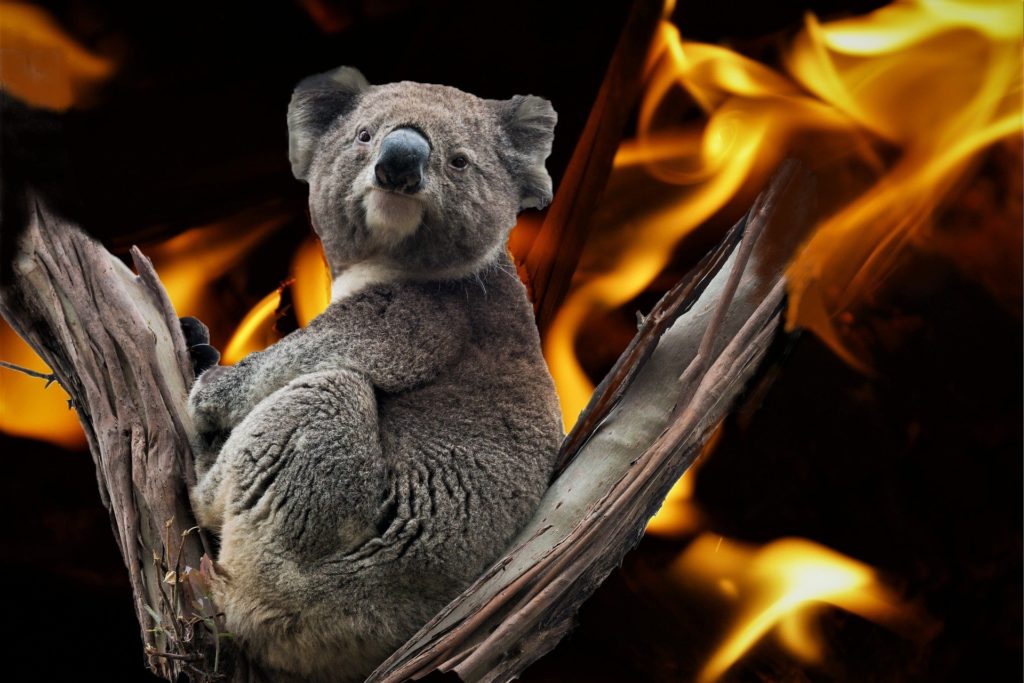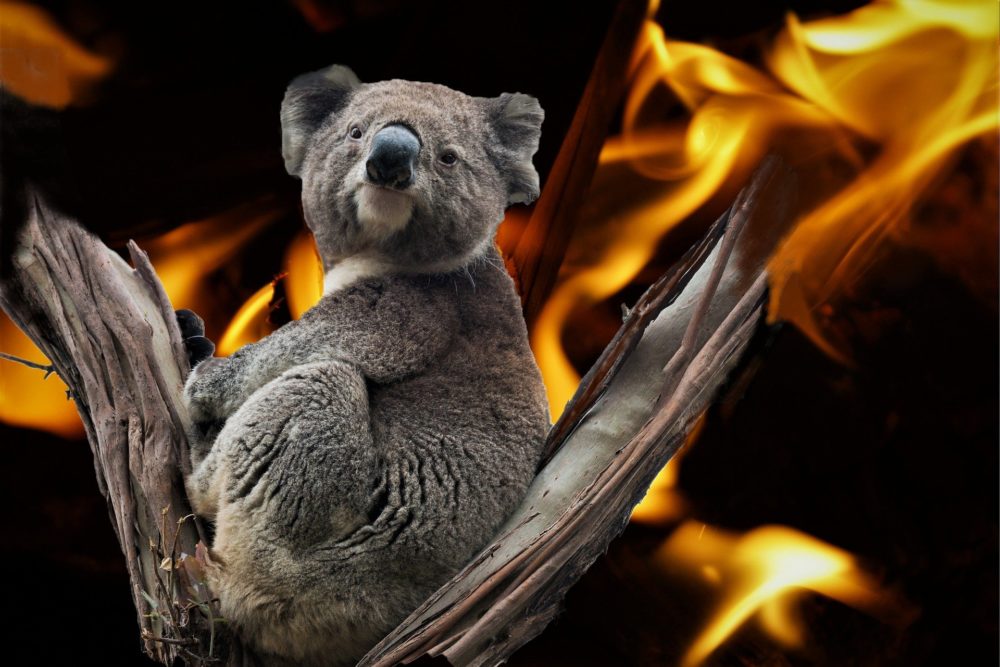Does it really matter if they are?

Please care about climate change, do it for the koalas.
At this point, almost everyone has heard about the crisis in Australia right now. The wildfires rampaging across the country have been a topic in the news for the last month or so.
According to CNN’s Jessie Yeung, the fires have killed 28 people, destroyed 3,000 homes and impacted at least half a billion animals.
In the broadcasting of this disaster, there has been a lot of confusion over whether or not climate change is affecting the spread and intensity of these wildfires. Many news outlets have been reporting that arsonists are responsible for the fires. While other experts have been reassuring that the wildfires are indeed a result of climate change.
The short and sweet of the situation is this: a small percentage of wildfires were caused by arsonists, by and large, they were caused by natural causes, but the intensity of the fires is directly related to climate change.
Knowing this, what are the implications of this disaster caused by climate change, and will now knowing its cause change anyone’s minds?
For a better understanding of what’s happening in Australia, it’s important to know that there is a fire season in the country every year. According to the Australian Government Bureau of Meteorology, these fires usually erupt due to a drier climate and natural causes, such as lightning.
Also important to know, there have been instances of arson reported, as well as reports of human-caused unintentional fires. Yet, in many media reports, the frequency of arson has been grossly exaggerated.
As the Queensland Police Service reported, only 11 percent of the fires started were human-caused, the rest were due to natural causes.
Most important though is that despite human interference and despite the fact that fires are expected, the situation currently happening is a direct result of climate change. Weather conditions are growing more extreme, wherein droughts are more likely to occur, fires have more intensity and floods are far more disastrous.
The Australian Government Bureau of Meteorology has directly linked the hot, dry conditions fueling the fires to climate change. Regardless of whether or not the fires were human or nature caused, it is climate change that allows the rapidity of their spread.
2019 was recorded as the hottest and driest year in Australia to date.
As Jennifer Marlon, a researcher at the Yale School of Forestry and Environmental Studies said, “There are fingerprints of climate change in all of these blazes that really can’t be denied.”
The point here is simple: it should matter to us that the fires in Australia are a result of climate change. Even if this crisis is literally occurring halfway across the world, we should care because it is only a matter of time before this crisis is at our own doorstep.
Environmental science has come too far and too many experts have spoken up for climate change deniers to still be a thing. Similar to the ways we look back at individuals who thought the sun rotated the earth, we will look at people who continued to deny the obvious impacts of climate change, despite countless scientific evidence, with the same condescending confusion.
People are dying and losing their homes. If that does nothing to make you take pause, at least start to care about climate change for the koalas. Over one-third of the koala population has been wiped out due to the fires. So if not for me, if not for your fellow-man, look into climate change for those cute furry friends.
